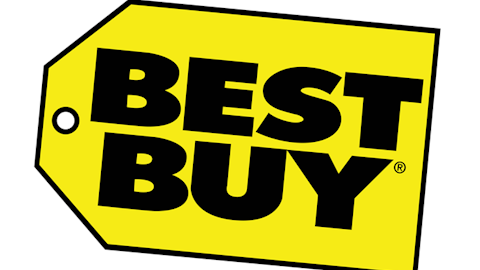In this article, we will take a look at some of the best dividend stocks in the retail sector.
The retail sector has been reshaped by a wave of digital transformation that accelerated during the COVID-19 pandemic. Instead of relying on broad, supply-driven models, retailers are now adopting data-driven strategies that focus on personalized offerings tailored to individual customers. The shift, however, has not been without hurdles, as higher costs and the limitations of traditional systems created significant challenges.
US retail sales grew in August for the third straight month, signaling that consumers are still spending despite higher prices from tariffs, weak sentiment, and signs of a cooling job market.
According to Commerce Department data released Tuesday, retail purchases rose 0.6% from the prior month, matching July’s pace and surpassing all forecasts in a Bloomberg survey of economists. Excluding autos, sales were up 0.7%. Gains were recorded in nine of 13 categories, with the strongest growth coming from online retailers, clothing outlets, and sporting goods stores, likely boosted by back-to-school shopping.
Since then, the industry has reached a point of relative stability, positioning it as an attractive option for investors seeking opportunities tied to rising consumer demand. The retail space also carries a strong track record of rewarding shareholders through dividend payouts. In fact, a report from Janus Henderson highlighted that general retail companies distributed $34.6 billion in dividends in 2024, up from $18.1 billion in 2018.
Given this, we will take a look at some of the best dividend stocks in the retail sector.

Our Methodology
For this article, we scanned Insider Monkey’s database of nearly 1,000 hedge funds as of Q2 2025 and picked companies that operate in the retail industry. These companies sell goods and services directly to consumers for personal use and operate through physical stores, online platforms, or a combination of both. From that list, we picked 12 stocks with the highest number of hedge fund investors and ranked them in ascending order of the hedge funds’ sentiment towards them.
Why are we interested in the stocks that hedge funds pile into? The reason is simple: our research has shown that we can outperform the market by imitating the top stock picks of the best hedge funds. Our quarterly newsletter’s strategy selects 14 small-cap and large-cap stocks every quarter and has returned 373.4% since May 2014, beating its benchmark by 218 percentage points (see more details here).
12. Macy’s, Inc. (NYSE:M)
Number of Hedge Fund Holders: 36
Macy’s, Inc. (NYSE:M) stands among the top retailers in the US, running its business under the Macy’s, Bloomingdale’s, and Bluemercury names. The company offers clothing, accessories, beauty products, and home essentials through roughly 680 stores as well as its online channels.
In recent years, Macy’s, Inc. (NYSE:M) has concentrated on upgrading its stores, strengthening its online marketplace, and expanding its luxury offerings. Its key priorities include creating a smooth connection between digital and in-store shopping, adjusting its store footprint to match demand, building unique private-label brands, and keeping costs under control in an increasingly competitive retail landscape.
Macy’s, Inc. (NYSE:M) is among the best dividend stocks in the retail sector as the company has been growing its payouts for four consecutive years. The company currently pays a quarterly dividend of $0.1824 per share and has a dividend yield of 4.32%, as of September 22.
11. American Eagle Outfitters, Inc. (NYSE:AEO)
Number of Hedge Fund Holders: 41
American Eagle Outfitters, Inc. (NYSE:AEO) is a specialty retailer that caters mainly to teens and young adults with casual clothing. Its business revolves around two core brands: American Eagle, which focuses on jeans and everyday apparel, and Aerie, which offers intimates, activewear, swimwear, and other apparel. The company operates 1,185 stores and continues to expand its reach globally through franchise partnerships.
American Eagle Outfitters, Inc. (NYSE:AEO)’s recent efforts have emphasized setting its brands apart, streamlining its supply chain, and enhancing digital capabilities. Key drivers of growth include the strong performance of Aerie, sustainability efforts through the Real Good line, and maintaining operational efficiency as retail dynamics evolve. Its focus on digital integration and inclusive brand policies further strengthens its standing in a highly competitive market.
On September 16, American Eagle Outfitters, Inc. (NYSE:AEO) declared a quarterly dividend of $0.125 per share, which was in line with its previous dividend. Though the company doesn’t hold any dividend growth streak, it has been making regular payments to shareholders for the last two decades. The stock has a dividend yield of 2.79%, as of September 22.
10. Best Buy Co., Inc. (NYSE:BBY)
Number of Hedge Fund Holders: 44
Best Buy Co., Inc. (NYSE:BBY) is an American multinational retailer specializing in consumer electronics, offering a broad range of products and related services. Along with its physical stores, the company has built a strong online presence, with both channels playing a key role in its omnichannel strategy. The company also benefits from solid partnerships with major vendors like Apple and Samsung, relationships that help it respond effectively to shifts in consumer demand.
In the second quarter of 2025, Best Buy Co., Inc. (NYSE:BBY) reported revenue of just under $9.44 billion, compared with about $9.29 billion in the same period a year earlier. This growth reflected a 1.6% year-over-year rise in comparable sales, which marked the strongest pace in three years. The increase was driven in part by a 5% jump in online sales.
In addition, Best Buy Co., Inc. (NYSE:BBY) is a solid dividend payer. The company has been rewarding shareholders with growing dividends for the past 12 consecutive years, which makes it one of the best dividend stocks in the retail sector. Currently, it offers a quarterly dividend of $0.95 per share and has a dividend yield of 5.25%, as of September 22.
9. Dollar General Corporation (NYSE:DG)
Number of Hedge Fund Holders: 55
Dollar General Corporation (NYSE:DG) is an American chain of discount stores. The chain offers a wide range of low-cost items, including daily essentials, clothing, and seasonal goods. For instance, it may carry well-known household brands like toilet paper, but often in smaller package sizes. While buying a single roll at Dollar General may cost less upfront than a bulk pack at a warehouse club, the per-unit price is usually higher in comparison.
Dollar General Corporation (NYSE:DG) focuses on meeting the needs of lower-income shoppers by strategically placing its smaller stores in rural communities that larger retailers often overlook. This approach makes the company a convenient option for quick trips, as customers may prefer stopping by a nearby store rather than traveling farther to a big-box retailer, even if larger stores sometimes offer better prices.
Dollar General Corporation (NYSE:DG) appeals to income investors because of its stable dividend history. The company has paid regular dividends to shareholders since 1975 and currently pays a quarterly dividend of $0.59 per share. With a dividend yield of 2.32%, as of September 22, DG is among the best dividend stocks.
8. DICK’S Sporting Goods, Inc. (NYSE:DKS)
Number of Hedge Fund Holders: 55
DICK’S Sporting Goods, Inc. (NYSE:DKS) runs a broad network of stores across the United States, where it sells sporting equipment, footwear, clothing, and related gear. Its shoppers range from casual fitness enthusiasts to dedicated athletes, while its online channels work alongside its stores to provide a connected shopping experience.
In recent years, DICK’S Sporting Goods, Inc. (NYSE:DKS) has emphasized building a smooth customer journey by linking its physical stores with digital ordering and delivery options. Its strategy highlights close partnerships with top athletic brands, the expansion of exclusive in-house labels, continuous investment in technology and data, and an increased focus on specialty footwear and apparel. These priorities help the retailer bring in new customers, boost sales, and protect profitability in a highly competitive market.
DICK’S Sporting Goods, Inc. (NYSE:DKS) is popular among income investors because of its dividend growth streak, which spans 16 years. The company currently pays a quarterly dividend of $1.2125 per share and has a dividend yield of 2.21%, as of September 22.
7. Ross Stores, Inc. (NASDAQ:ROST)
Number of Hedge Fund Holders: 62
Ross Stores, Inc. (NASDAQ:ROST) operates a large off-price retail network across the US, offering clothing, home goods, shoes, and accessories at lower prices than traditional department and specialty stores. Its two main chains, Ross Dress for Less and dd’s DISCOUNTS, appeal to budget-conscious shoppers seeking brand-name products at reduced costs. The business model is built around purchasing closeout and excess inventory, providing customers with a constantly refreshed selection at discounted rates.
In recent years, Ross Stores, Inc. (NASDAQ:ROST) has concentrated on five main priorities: off-price buying, expanding its store base, improving supply chain efficiency, strengthening marketing, and managing its workforce. Its strategy is driven by sourcing merchandise on favorable terms, maintaining fast inventory turnover, and opening new stores. Long-term success depends on adapting to shifting consumer tastes, securing strong supply agreements, and keeping expenses under control in areas like distribution and real estate.
Ross Stores, Inc. (NASDAQ:ROST)’s dividend history is also appealing for investors. The company has raised its payouts for four consecutive years, which makes it one of the best dividend stocks in the retail sector. Currently, it pays a quarterly dividend of $0.405 per share and has a dividend yield of 1.12%, as of September 22.
6. The Kroger Co. (NYSE:KR)
Number of Hedge Fund Holders: 68
The Kroger Co. (NYSE:KR) may not get as much attention as high-growth technology names, but it stands as one of the largest grocery chains in the US, delivering steady earnings, rewarding shareholders, and serving as a vital part of the communities where it operates.
Few industries are as resilient as food retail. Even when consumers cut back on vacations or postpone major purchases, grocery spending remains a necessity. Today, The Kroger Co. (NYSE:KR) runs more than 2,700 stores nationwide under banners such as Fred Meyer, Ralphs, King Soopers, Harris Teeter, and its flagship Kroger brand. In addition, the company operates over 2,000 in-store pharmacies and around 1,500 fuel centers, giving it multiple sources of revenue beyond traditional grocery sales.
The Kroger Co. (NYSE:KR)’s dividend makes it an appealing choice for income investors. The company holds a 19-year track record of consistent dividend growth, which makes it one of the best dividend stocks in the retail sector. It pays a quarterly dividend of $0.35 per share and has a dividend yield of 2.17%, as of September 22.
5. The TJX Companies, Inc. (NYSE:TJX)
Number of Hedge Fund Holders: 73
The TJX Companies, Inc. (NYSE:TJX) runs more than 5,000 off-price stores across nine countries, with TJ Maxx as its leading banner and other major brands including Marshalls and HomeGoods. The company is recognized for offering discounted brand-name merchandise and creating a “treasure hunt” shopping atmosphere. Instead of keeping a full stock of the same products, TJX sources goods from over 21,000 vendors and emphasizes variety, which keeps its selection fresh and constantly changing.
The TJX Companies, Inc. (NYSE:TJX)’s business strength rests on five pillars: opportunistic purchasing, a flexible store format, global scale, the treasure-hunt shopping experience, and tight cost control. These elements allow TJX to adapt quickly to shifting consumer preferences, draw in value-focused shoppers, and grow its store base worldwide. Long-term success relies on securing merchandise at attractive prices, rotating assortments regularly, and delivering a shopping experience built around surprise and savings.
On September 17, The TJX Companies, Inc. (NYSE:TJX) declared a quarterly dividend of $0.425 per share, which was in line with its previous dividend. Overall, the company has been increasing its dividends for 28 consecutive years. As of September 22, the stock has a dividend yield of 1.22%.
4. Lowe’s Companies, Inc. (NYSE:LOW)
Number of Hedge Fund Holders: 75
Lowe’s Companies, Inc. (NYSE:LOW) has been operating for over a hundred years and was once the top home improvement retailer in the US. Today, it stands as the second-largest behind Home Depot, with more than 1,700 stores nationwide. The company previously had an international presence but has since exited markets in Australia, Mexico, and Canada.
Lowe’s Companies, Inc. (NYSE:LOW) remains well-positioned despite housing market concerns. When buying homes is difficult, homeowners often invest more in renovations, which supports long-term growth even if short-term spending slows. While consumer demand for home projects can shift with the economy, these trends are durable. As spending rebounds, Lowe’s should see renewed growth in upgrades and renovations.
The aging US housing stock, with most homes between 31 and 60 years old, also drives steady demand. Lowe’s Companies, Inc. (NYSE:LOW)’s focus on professional contractors, a growing sales segment, further strengthens its outlook.
Lowe’s Companies, Inc. (NYSE:LOW) is also gaining investors’ attention because of its status as a Dividend King. The company has grown its payouts for 60 consecutive years and currently offers a quarterly dividend of $1.20 per share. The stock has a dividend yield of 1.84%, as of September 22.
3. Costco Wholesale Corporation (NASDAQ:COST)
Number of Hedge Fund Holders: 91
Costco Wholesale Corporation (NASDAQ:COST) is the leading warehouse-club retailer, built on a membership model that combines low-margin, high-volume retail sales with recurring, high-margin membership fees and strong customer loyalty.
Costco Wholesale Corporation (NASDAQ:COST) continues to deliver steady results and consistent traffic, proving its ability to grow in various economic conditions. In its most recent quarter, revenue increased 8% from the prior year, while comparable sales rose 5.7% (or 8% when excluding fuel prices and currency effects). E-commerce remained a key growth driver, climbing 14.8% during the period. Operating income also improved, and earnings per share grew to $4.28 from $3.78 a year earlier, reflecting both sales growth and cost control. Membership fee income, a critical part of its model, rose 10% to about $1.24 billion.
Costco Wholesale Corporation (NASDAQ:COST)’s dividend history makes it a reliable investment option for income investors. The company currently offers a quarterly dividend of $1.30 per share and has a dividend yield of 0.55%, as of September 22. It has raised its payouts for 21 years in a row.
2. The Home Depot, Inc. (NYSE:HD)
Number of Hedge Fund Holders: 93
The Home Depot, Inc. (NYSE:HD) holds the top spot as the leading home improvement retailer. Each store typically caters to DIY customers and carries about 35,000 products for a wide range of projects.
By operating on a much larger scale than traditional hardware stores, The Home Depot, Inc. (NYSE:HD) established itself as a one-stop destination for home improvement, reshaping how Americans shop for these goods. Reflecting its maturity as a business, the company generated $85 billion in revenue during the first half of 2025, up 7% from the same period in 2024.
The Home Depot, Inc. (NYSE:HD) is one of the best dividend stocks in the retail sector as the company maintains a 15-year streak of consistent dividend growth. Currently, it offers a quarterly dividend of $2.30 per share and has a dividend yield of 2.23%, as of September 22.
1. Walmart Inc. (NYSE:WMT)
Number of Hedge Fund Holders: 105
Walmart Inc. (NYSE:WMT) is an American retail giant that runs hypermarkets, discount stores, and grocery stores nationwide. With more than 5,200 domestic locations, a strong e-commerce presence, its Sam’s Club division, and a sizable international business, Walmart’s wide product range— particularly in groceries— combined with its focus on everyday low prices, makes it highly competitive in any economic climate.
Walmart Inc. (NYSE:WMT) consistently delivers strong profits and returns value to shareholders through stock buybacks. Reducing the number of shares outstanding increases the value of each remaining share, and since 1995, Walmart has nearly halved its share count.
Walmart Inc. (NYSE:WMT)’s dividend also plays an important role in its success over the years. The company currently pays a quarterly dividend of $0.235 per share and has a dividend yield of 0.91%, as of September 22. WMT has been growing its payouts for 52 consecutive years.
While we acknowledge the potential of WMT to grow, our conviction lies in the belief that some AI stocks hold greater promise for delivering higher returns and have limited downside risk. If you are looking for an AI stock that is more promising than WMT and that has 100x upside potential, check out our report about this cheapest AI stock.
READ NEXT: 11 Cheap Quarterly Dividend Stocks to Buy Right Now and 10 Safest High Dividend Stocks to Buy Now.
Disclosure: None. Insider Monkey focuses on uncovering the best investment ideas of hedge funds and insiders. Please subscribe to our free daily e-newsletter to get the latest investment ideas from hedge funds’ investor letters by entering your email address below.





